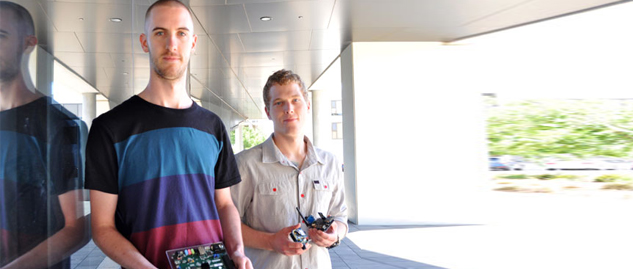06 January 2015

Denni Mackrill (left) and Mathew Potaczek (right) focused on developing sensor nodes that are more energy efficient, powerful and flexible than what is currently available on the market.
Engineering undergraduates at the University of South Australia (UniSA) are working towards the future Internet of Things and improving programming technology.
Imagine a world with billions of small devices spread around you, collecting vital information for you to control and monitor machinery, appliances and processes in hospitals, industries, businesses and your own home. Or if you are a budding programmer, being able to more easily programme computer chips to control robots.
UniSA Bachelor of Engineering students Mathew Potaczek and Hugh Considine are working on such projects that are at the cutting edge of technology, contributing to the knowledge that will potentially shape the future of how we interact with our environment and solving current gaps in programming technology.
Both students have recently won the 2014 IET Rex John Student Presentation Prize for their presentations in South Australia of their final year projects. The awards are given by the UK-based Institute of Engineering and Technology (IET) and are part of the state level final for the IET’s prestigious Present Around the World (PATW) competition.



